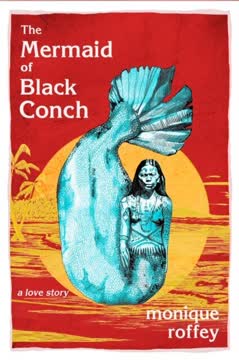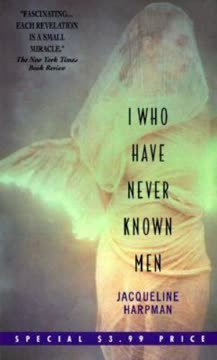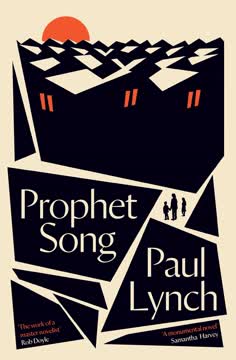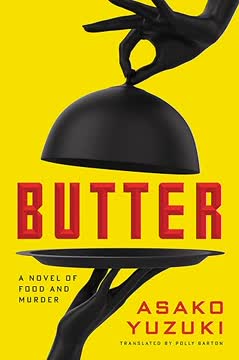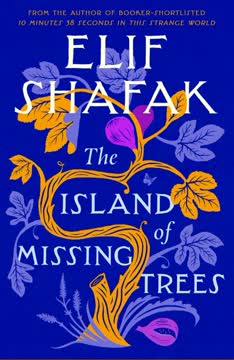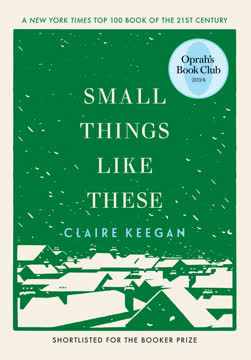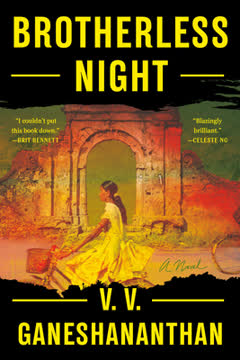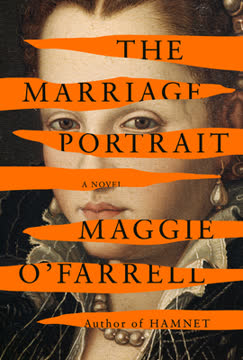Plot Summary
Fisherman's Song at Dawn
David Baptiste, a solitary Black Conch fisherman, finds solace in the early morning sea, his guitar, and the memory of his mother. One morning, his music draws forth a mermaid—Aycayia, red-skinned and ancient, her hair tangled with seaweed and shells. Their eyes meet, and a silent, electric connection forms. David is both terrified and enchanted, unsure if he's hallucinating or witnessing a legend. The mermaid, drawn by the music, is equally curious and cautious. This encounter awakens a longing in both: for David, a yearning for something beyond the ordinary; for Aycayia, a flicker of hope after centuries of exile. Their meetings become a secret ritual, a fragile bridge between worlds, setting the stage for a story of love, transformation, and the weight of old curses.
The Catch and the Curse
The annual fishing competition brings outsiders—white American men, Thomas and Hank Clayson—seeking glory and profit. With local crew, they set out to sea, their lines baited for marlin but instead snaring Aycayia. Mistaking the boat for David's, she is hooked and dragged into a brutal, hours-long struggle. The men, awed and greedy, see only a prize, not a person. Aycayia's capture is violent and humiliating, echoing the ancient curse that made her a mermaid: punished by jealous women for her beauty and allure, exiled to the sea. The trauma of being pulled from her element, displayed and objectified, reignites the pain of her original banishment. The curse's power is palpable, and the island's old stories stir uneasily as the mermaid is brought ashore.
Strung Up on the Jetty
Aycayia is strung upside down beside the marlin, her body poked, prodded, and mocked by drunken men. She is both spectacle and victim, her suffering met with laughter and lechery. The Americans plan to sell her, the locals are unsettled, and only David feels the depth of her pain. The scene is a grotesque reversal of crucifixion, a symbol of colonial violence and the commodification of the exotic. In the rain, the crowd disperses, leaving Aycayia vulnerable to further abuse. David, wracked with guilt and love, resolves to act. The chapter is a meditation on power, otherness, and the ways women's bodies are policed and punished, especially those who do not conform.
Rescue in the Rain
Under cover of rain and darkness, David cuts Aycayia down, smuggling her away in a wheelbarrow. He brings her to his home, hiding her in a bathtub filled with saltwater. The rescue is fraught with fear—of discovery, of Aycayia's wounds, of the curse's consequences. David's care is clumsy but sincere; he is determined to save her, even as she is mute, traumatized, and barely alive. The village buzzes with rumors, but no one suspects the truth. As Aycayia begins to heal, the boundaries between man and mermaid, past and present, start to blur. The act of rescue is not just physical but spiritual—a chance for redemption, for both Aycayia and David.
Becoming Woman Again
In David's bathtub, Aycayia's body begins to change. Her tail rots and falls away, her scales shed, and her legs slowly re-emerge. The process is painful and messy, a rebirth as much as a return. She is weak, unable to walk, and haunted by memories of her curse and exile. David tends to her, feeding her fruit, cleaning her wounds, and respecting her boundaries. The transformation is not just physical but existential: Aycayia must relearn what it means to be human, to trust, to desire. The intimacy between her and David deepens, but so does the threat of exposure. The curse lingers, and the world outside is not ready to accept her.
Learning to Walk, Learning to Speak
With patience and help from David and Miss Rain, the island's white landowner, Aycayia learns to walk on her new legs. She is given clothes, shoes, and—most importantly—words. Reggie, Miss Rain's deaf son, teaches her sign language, while Miss Rain teaches her to read and speak Black Conch English. Language becomes a lifeline, a way to connect, to express, to belong. Aycayia's progress is slow but determined; she is fiercely intelligent, absorbing new knowledge and questioning everything. The process is also a confrontation with loss: her old language, her people, her place in the world. Yet, in learning to speak, she begins to reclaim her story and her power.
New Friendships, Old Wounds
Aycayia's presence in David's house cannot remain secret forever. Priscilla, a neighbor with her own grievances, becomes suspicious. The village is a web of kinship and rivalry, and old wounds—colonial, racial, gendered—surface. Miss Rain, herself an outsider despite her privilege, becomes an ally, offering shelter and education. Reggie forms a unique bond with Aycayia, both of them marked by difference and exclusion. Yet, the threat of betrayal looms: those who witnessed the mermaid's capture, and those who envy or fear her, are never far away. The chapter explores the complexities of community, the persistence of prejudice, and the fragile possibilities of solidarity.
The Fish Rain and the Curse
A miraculous event shakes the island: a rain of fish falls from the sky, a sign that Aycayia's curse is still active and that the women who cursed her—now long dead—still wield power from beyond. The fish rain terrifies Aycayia and the villagers, signaling that her time on land may be short. The supernatural intrusion is both a warning and a reminder: curses, like trauma, are not easily escaped. Aycayia is plunged into despair, contemplating suicide as a way to break the cycle. The chapter is a turning point, where hope and doom are inextricably linked, and the boundaries between the living and the dead, the natural and the supernatural, are blurred.
Love, Jealousy, and Exile
David and Aycayia's relationship deepens into love, culminating in physical intimacy. For Aycayia, this is both a revelation and a risk: the fulfillment of desires denied for centuries, but also a reminder of the jealousy that led to her curse. David proposes marriage, but Aycayia, haunted by the memory of her exile and the fear of being possessed or controlled, cannot accept. Their love is passionate but precarious, shadowed by history and the impossibility of true belonging. Meanwhile, Priscilla's envy and resentment boil over, leading her to betray David and Aycayia to the authorities. The chapter explores the interplay of love and jealousy, freedom and captivity, and the enduring scars of exile.
Betrayal and Imprisonment
Priscilla and Superintendent Porthos John, motivated by greed and old grudges, orchestrate a raid on David's house. Aycayia and David are arrested, imprisoned, and threatened with being handed over to the Americans. In the cell, Aycayia's transformation accelerates—her scales return, her body reverts to mermaid form. The curse tightens its grip, and hope seems lost. Yet, allies mobilize: Miss Rain and Life, her long-lost lover, stage a daring rescue, freeing David and Aycayia. The chapter is a crucible of suffering and solidarity, where the true nature of friendship, love, and courage is revealed.
The Storm Gathers
As a hurricane—Rosamund—approaches, the island braces for destruction. The storm is both literal and symbolic: the culmination of Aycayia's curse, the violence of history, and the chaos of human desire. The Americans return, determined to reclaim their "property." The villagers are divided, some seeking profit, others justice. In the eye of the storm, decisions must be made: whether to fight for Aycayia's right to choose her fate, or to surrender to the forces—natural and supernatural—that seek to claim her. The chapter is a meditation on fate, agency, and the power of nature to both destroy and renew.
The Return to the Sea
With the hurricane raging, David, Miss Rain, Life, and Reggie smuggle Aycayia to the jetty. She has fully transformed back into a mermaid, her human time on land at an end. In a tearful, loving farewell, they release her into the sea, honoring her wish to escape captivity and loneliness. The act is both a loss and a liberation: Aycayia returns to her element, but the bonds forged on land—of love, friendship, and understanding—endure. The storm, too, passes, leaving devastation but also the possibility of new beginnings. The chapter is a testament to the power of letting go, of honoring difference, and of the enduring hope for reunion.
After the Hurricane
In the aftermath of Rosamund, the island is changed. Homes are destroyed, lives upended, but the community endures. David mourns Aycayia but finds solace in the memory of their love and the knowledge that she is free. Miss Rain and Life, reunited, begin to imagine a future together, while Reggie, changed by his friendship with Aycayia, dreams of new possibilities. The Americans leave, defeated and diminished. The curse, though not broken, is transformed: it becomes a story, a warning, and a source of strength. The chapter is about survival, resilience, and the ways in which love and loss shape the future.
Echoes of the Mermaid
Years pass, but the memory of the mermaid lingers in Black Conch. David, now old, still looks to the sea, hoping for a glimpse of Aycayia. The island's stories are richer for her presence, its wounds less raw. The curse is not undone, but its power is diminished by compassion, understanding, and the refusal to forget. Aycayia, somewhere in the ocean, remembers her time on land, the love she found, and the friends who risked everything for her. The story ends with a sense of possibility: that healing is never complete, but always ongoing; that exile can be transformed into belonging, if only for a moment; and that the mermaid's song, once heard, can never be silenced.
Characters
Aycayia
Aycayia is the heart of the novel: a Taino woman cursed by jealous women to live as a mermaid, exiled from her people and denied the fullness of womanhood. Her centuries in the sea are marked by loneliness, longing, and resilience. When she is caught and brought to land, she undergoes a painful transformation—physically, emotionally, and linguistically. Aycayia is fiercely intelligent, curious, and sensitive, but also haunted by trauma and the ever-present threat of the curse. Her relationships—with David, Miss Rain, and Reggie—allow her to reclaim parts of her humanity, but she is never fully free. Her journey is one of survival, self-discovery, and the search for connection in a world that fears and desires her in equal measure.
David Baptiste
David is a fisherman marked by loss—of his mother, of simplicity, of certainty. His encounter with Aycayia awakens a deep compassion and a longing for something beyond the ordinary. He is patient, nurturing, and respectful, but also burdened by guilt and the fear of failing those he loves. David's love for Aycayia is transformative, challenging his assumptions about masculinity, power, and care. He is both protector and student, learning from Aycayia as much as he teaches her. His journey is one of growth, vulnerability, and the acceptance of loss as a necessary part of love.
Miss Arcadia Rain
Miss Rain is the white landowner of Black Conch, descended from colonizers but deeply connected to the island and its people. She is both privileged and marginalized, respected and resented. Her relationship with Life, a Black Conch man, is fraught with history, love, and the impossibility of true equality. As a mother to Reggie, she is fiercely protective and resourceful, determined to give him the tools to thrive in a world that excludes him. Miss Rain becomes a crucial ally to Aycayia, offering shelter, education, and understanding. Her character embodies the complexities of race, class, and gender in the Caribbean, and her development is a testament to the power of empathy and self-examination.
Reggie Rain
Reggie is Miss Rain's deaf son, a boy of intelligence, sensitivity, and imagination. Isolated by his difference, he finds in Aycayia a kindred spirit—someone who, like him, must learn new ways to communicate and belong. Reggie teaches Aycayia sign language, and in turn, learns from her about resilience and the value of being different. His relationship with his mother is close, but he yearns for connection with his absent father, Life. Reggie's journey is one of self-acceptance, creativity, and the forging of new forms of kinship.
Life Baptiste
Life is David's uncle and Miss Rain's long-lost lover, a man who left Black Conch in search of freedom and self-realization. His return is both a reckoning and a renewal: he must confront the pain he caused by leaving, the limitations of love across racial and social divides, and the responsibilities of fatherhood. Life is charismatic, talented, and deeply conflicted, embodying the tensions of postcolonial identity. His relationship with Miss Rain is passionate but fraught, a microcosm of the island's history. Life's development is a journey toward acceptance, humility, and the possibility of healing old wounds.
Thomas Clayson
Thomas is the American banker who captures Aycayia, seeing her only as a prize to be sold. He is driven by entitlement, racism, and a desperate need for validation. His relationship with his son, Hank, is strained and abusive, marked by disappointment and the inability to understand difference. Thomas represents the ongoing violence of colonialism, the commodification of the exotic, and the refusal to see the humanity in others. His character is a warning against the dangers of unchecked power and the corrosive effects of greed.
Hank Clayson
Hank is Thomas's son, a young man more interested in poetry than conquest. He is both complicit in and horrified by his father's actions. The experience of catching Aycayia is transformative, awakening in him a sense of wonder, guilt, and longing. Hank is unable to save Aycayia, but he is changed by her, haunted by the memory of her suffering and beauty. His character is a study in the complexities of complicity, the possibility of change, and the limits of good intentions.
Priscilla
Priscilla is David's neighbor, a woman marked by bitterness, jealousy, and a sense of exclusion. Her actions are driven by a desire for recognition, power, and revenge—against David, against Miss Rain, against the world that has denied her. Priscilla's betrayal of Aycayia is both personal and symbolic: she is the inheritor of the same jealousies that led to Aycayia's original curse. Yet, she is also a product of her environment, shaped by poverty, racism, and the legacies of colonialism. Her character is a reminder of the ways in which oppression breeds further harm.
Superintendent Porthos John
Porthos is the local police chief, a man who balances law, self-interest, and the demands of the community. He is easily manipulated by Priscilla and the Americans, but is also haunted by doubts about the justice of his actions. Porthos is emblematic of the failures of authority in postcolonial societies, where power is often wielded for personal gain rather than the common good. His character is both comic and tragic, a figure of weakness and, occasionally, reluctant empathy.
Guanayoa
Guanayoa is the old woman who was cursed alongside Aycayia, transformed into a leatherback turtle. Though mostly absent, her presence is felt as a symbol of endurance, wisdom, and the possibility of companionship even in exile. She represents the older generation, the survivors of trauma, and the hope that even the most profound loneliness can be shared.
Plot Devices
Dual Narratives and Shifting Perspectives
The novel employs a polyphonic structure, alternating between first-person journals (David, Aycayia), third-person narration, and the perspectives of other key characters. This multiplicity allows for a rich exploration of interiority, memory, and trauma. The shifting voices create empathy for even the most flawed characters, and highlight the ways in which stories are shaped by who tells them. The use of poetry and song in Aycayia's sections evokes the oral traditions of the Caribbean and the fluidity of myth.
Magical Realism and Folklore
The story is suffused with magical realism: mermaids, fish rain, curses, and talking trees coexist with the everyday realities of village life. These elements are not mere fantasy, but expressions of the Caribbean's syncretic culture, where the boundaries between the natural and supernatural are porous. The magical serves to illuminate the psychological and historical: Aycayia's curse is both literal and metaphorical, a manifestation of collective trauma and the persistence of the past.
The Curse as Central Motif
The curse that transforms Aycayia is the novel's central plot device, linking personal suffering to collective history. It is a punishment for female desire, beauty, and difference, echoing the ways women are policed and exiled in patriarchal societies. The curse is also a metaphor for colonialism, racism, and the legacies of violence that haunt the Caribbean. Its persistence, even after the death of those who cast it, speaks to the enduring power of trauma—and the difficulty of breaking free.
Foreshadowing and Cyclical Structure
The novel is structured around cycles: the return of the leatherbacks, the recurrence of storms, the repetition of exile and return. Foreshadowing is used to build tension—the early mention of curses, the ominous presence of storms, the warnings of the fish rain. The story's ending echoes its beginning: Aycayia returns to the sea, but the possibility of reunion remains. This cyclical structure reinforces the themes of transformation, resilience, and the hope that what is lost can, in some form, be found again.
Analysis
The Mermaid of Black Conch is a luminous reimagining of myth, history, and the complexities of belonging. At its core, the novel interrogates the legacies of colonialism, patriarchy, and exclusion—how they shape bodies, desires, and destinies. Aycayia's journey from mermaid to woman and back again is both a personal odyssey and a collective reckoning: her curse is the curse of all those exiled by difference, punished for beauty, desire, or simply being. The novel's polyphonic structure invites empathy for every character, revealing the ways in which love and harm are entangled. Magical realism is not escapism but a means of articulating truths that realism cannot contain: the persistence of trauma, the possibility of healing, the porousness of boundaries. Ultimately, the story is a testament to the power of compassion, the necessity of letting go, and the hope that even the most profound wounds can be transformed by love, memory, and the refusal to forget. In a world still marked by old curses, The Mermaid of Black Conch offers a vision of redemption—not through erasure, but through the embrace of complexity, vulnerability, and the enduring song of the mermaid.
Last updated:
Review Summary
The Mermaid of Black Conch is a unique and enchanting Caribbean love story that blends magical realism with themes of colonialism, racism, and sexuality. While praised for its vivid prose and exploration of complex issues, some readers found the explicit sexual content jarring. The novel's portrayal of a mermaid rescued by a fisherman captivated many, though opinions varied on its execution. Overall, it's considered a powerful and thought-provoking work that has garnered critical acclaim and multiple literary awards.
Similar Books
Download PDF
Download EPUB
.epub digital book format is ideal for reading ebooks on phones, tablets, and e-readers.
